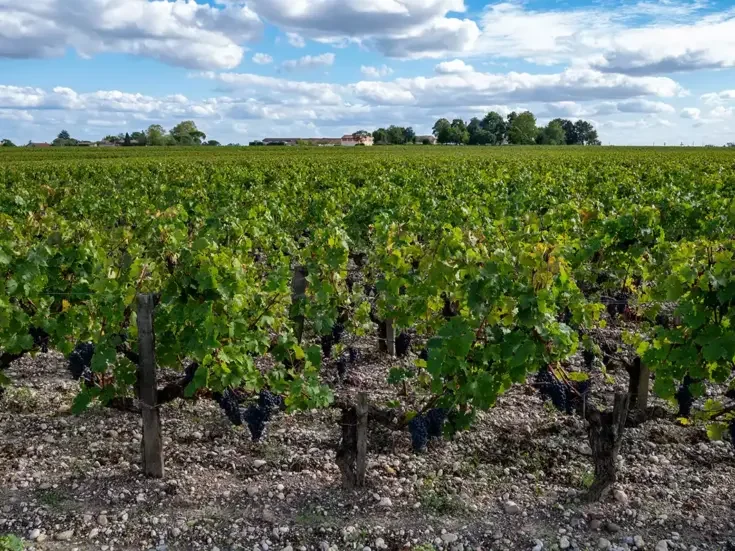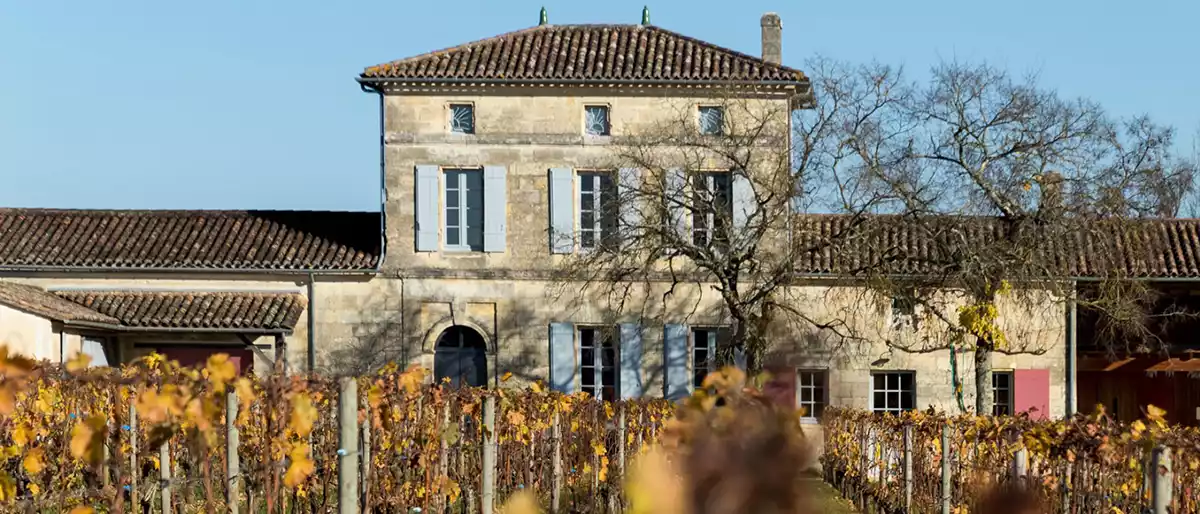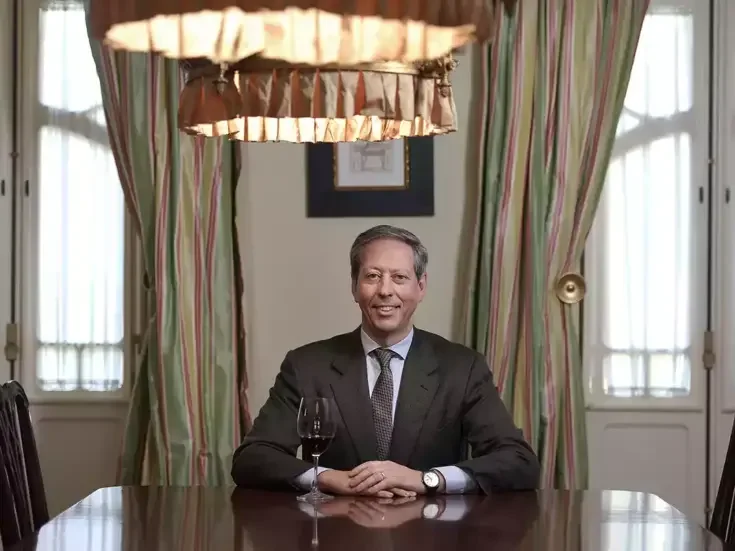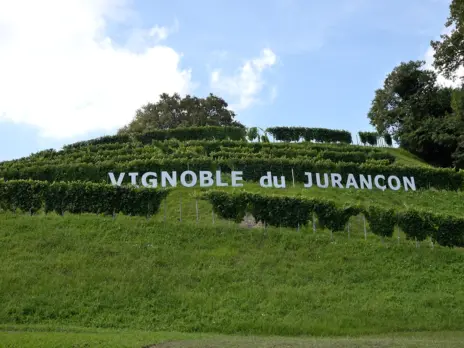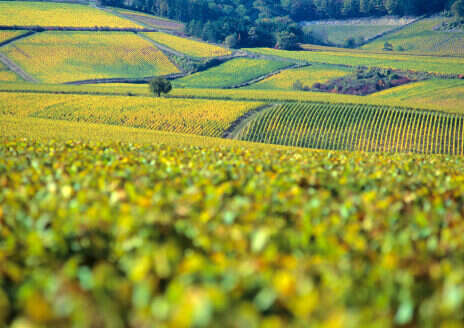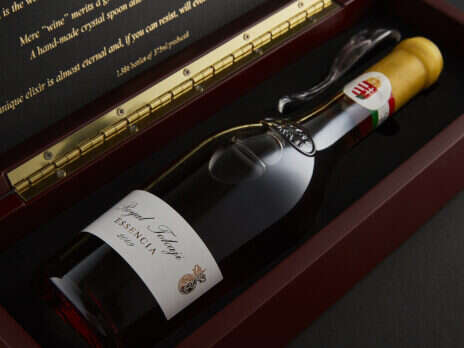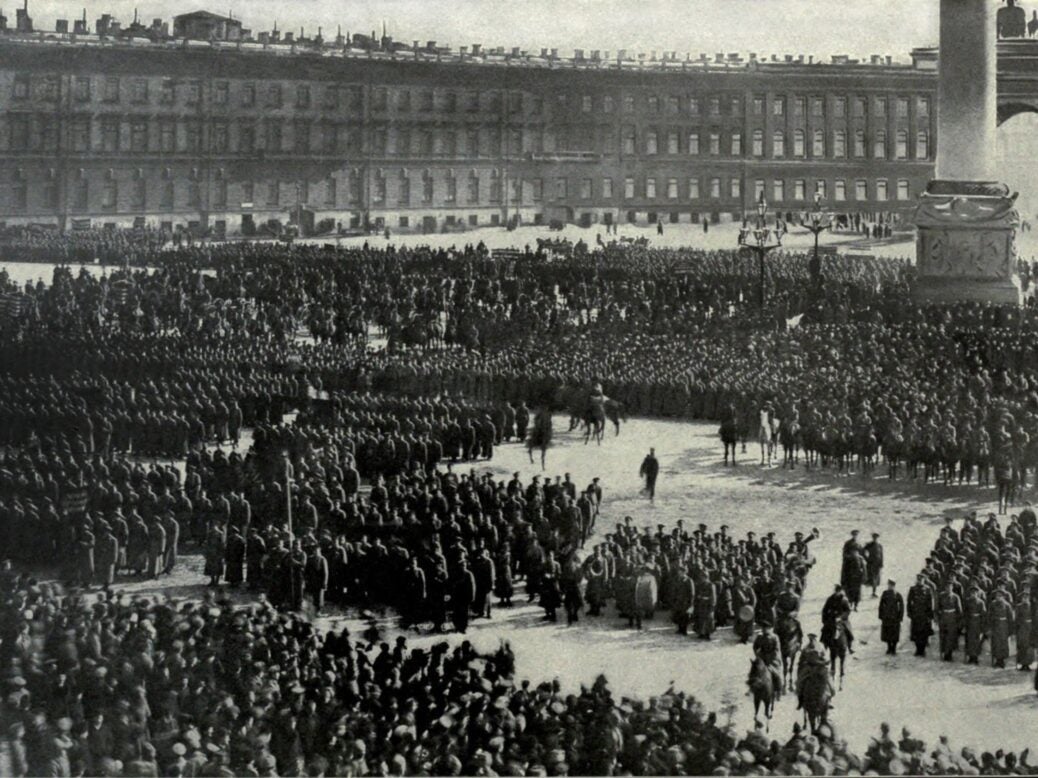
In the first of a new series of columns exploring wine at pivotal moments in social and cultural history, Stuart Walton looks at what happens when revolutionaries raid the cellars of the rich and powerful—from Château d’Yquem at the Winter Palace, to the Ceauşescus’ Vintage Champagne.
An indispensable ingredient of the overthrow of any moribund regime is the storming of the ruler’s palace. Only now, as the incensed multitude dashes forth in insurrection, does it discover the heights and depths of luxury in which the privileged lived, while their own wage-labour barely earned them bread. Notwithstanding the softness of the carpet pile underfoot and the inviting velour of the upholstery, much of the opulence must look alienating in its pomposity—the generations of family portraits in oils, the tapestries, the bone china, the silver tea services, all that gilding of the lily.
The materiality of privilege
It’s only in the cellars, though, that the materiality of privilege is transmuted back into its most spiritual form. With the Bolshevist raid of the Winter Palace in Petrograd in 1917, it broke into the biggest private wine cellar in the world, where the grandest productions of European viticulture lay in slumberous repose: Lafites and Latours, Tokajis and Cristals, and—the particular bonne bouche of the Tsars—generations of Yquems gradually acquiring the bronzing patina of age, to match the family portraits. Where would they start?
The problem, in the days and weeks to come, was more when the workers and soldiers who raided this cellar were to stop. While it was true that Lenin had decreed that the riches of the Romanovs had been extorted from the exhaustion of the labouring masses, and were therefore common property, it was equally the case that the Revolution was not a bottle party. In an effort to stop the determined pillaging, a temporary wall was put up to shield the cellars, but the crowds tore through it. Once you had tasted 50-year-old Sauternes, it was hard to go back to kvass. And if you hadn’t tasted it, there were those who now had, whose tantalising descriptions of it were stronger than any crush barrier.
When the Bolshevik authority hit on the idea of pumping the combined contents of the cellar into the Neva, crowds gathered around the outlets like shoals of silver mullet at an effluent pipe, happily sucking in what may now have been a festive mix of claret, Champagne bubbles and noble rot. Only the eventual imposition of martial law in early December put an end to the jamboree, when, as Orlando Figes puts it, the city awoke to “the biggest hangover in history.”
A brigade of angry workers
There were precedents for the Russian bacchanal. The canary in the coal mine of the French Revolution was the Réveillon riot of April 1789, when a brigade of angry workers stormed the wallpaper factory and ancestral home of Jean-Baptiste Réveillon. Inflamed by a probably false rumour that the plutocratic proprietor was about to announce a wage cut, labourers who had consumed more gum fumes than they ever had Gruaud-Larose tore into both factory and house, smashing and burning as they went, until they arrived at the cellar of two thousand bottles. What fine wine ever tastes better than when somebody else has paid for it?
In August 1792, the King’s wine cellar in the Tuileries Palace was plundered by an antic mob, a moment caught imaginatively in Johann Zoffany’s vivid oil portrayal of the scene, in the centre of which, amid brandished pikes topped with the obligatory impaled heads, a victorious sans-culotte drags forth an enormous round basket laden with bottles.
For the principal agents of a historical era that has accelerated into chaotic disintegration, plundered wine is both condemnation of the defeated regime and reward for those who have overthrown it. It lubricates the unfettered celebration of an unfettering, as in the Dionysian festivals of classical Athens. Nazi stormtroopers looted the cellars of occupied France in 1940, and in turn the cellars of Hitler’s mountain retreat at Berchtesgaden were liberated by American and French forces after the surrender in 1945, a river of Burgundy, claret and Armagnac flowing back down the throats of those whose compatriots had made it. Its very magnificence suits the moment. Like napalm in the morning, it is redolent of victory.
The private riches of toppled dictators
Later eras have been more prudential. A new regime taking over amid conditions of national exigency might as well capitalize the private riches of toppled dictators. The hastily assembled government that emerged in Romania in late 1989, after the drumhead execution of the detested Ceauşescus, immediately threw a defensive cordon around the Primăverii Palace, the Bucharest villa in which the couple had languished among antique marquetry, globe chandeliers, Murano mirrors, gold-plated bathroom fixtures, and carelessly strewn copies of Paris Match. The contents of its wine cellar—Romanian wines dating back to the Great War, Vintage Champagne and XO Cognac—were eventually sold at auction to a hotel chain. The proceeds went to an old people’s home.
